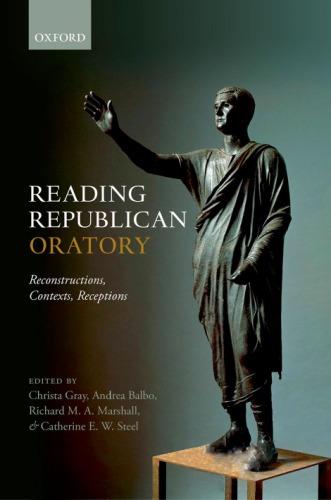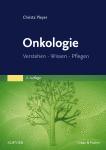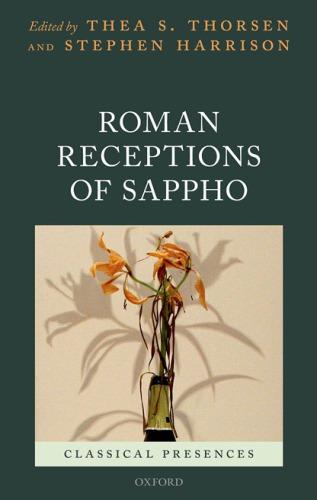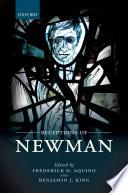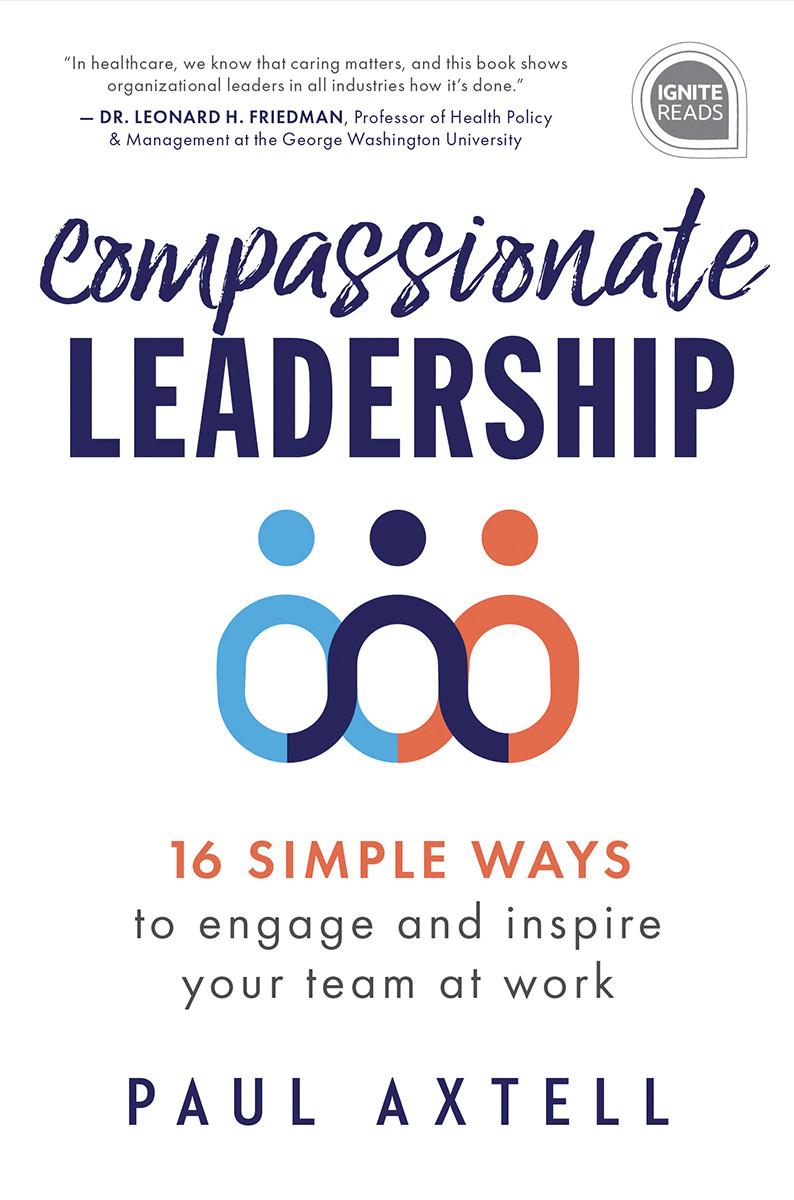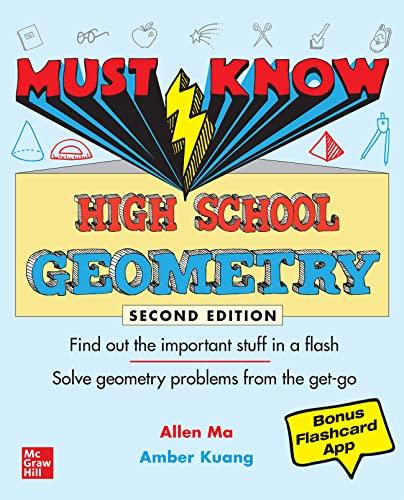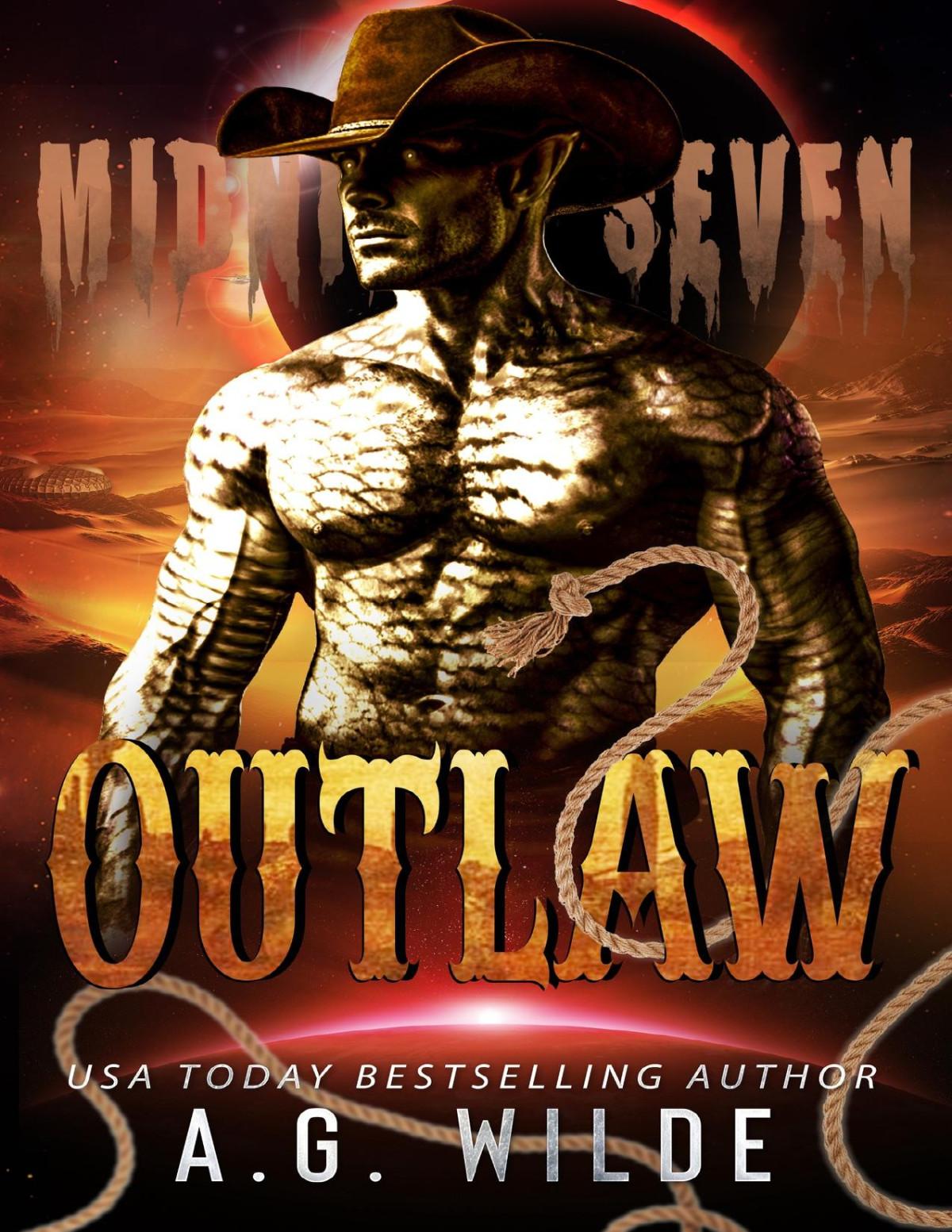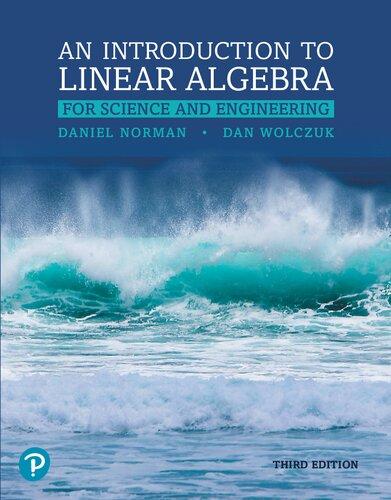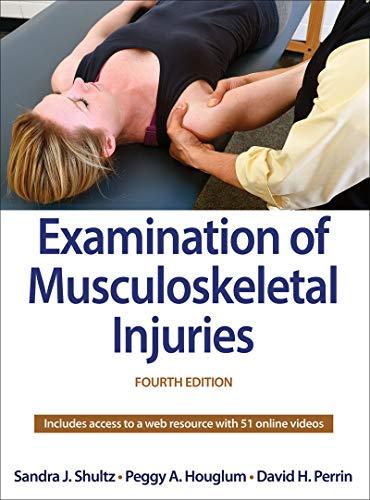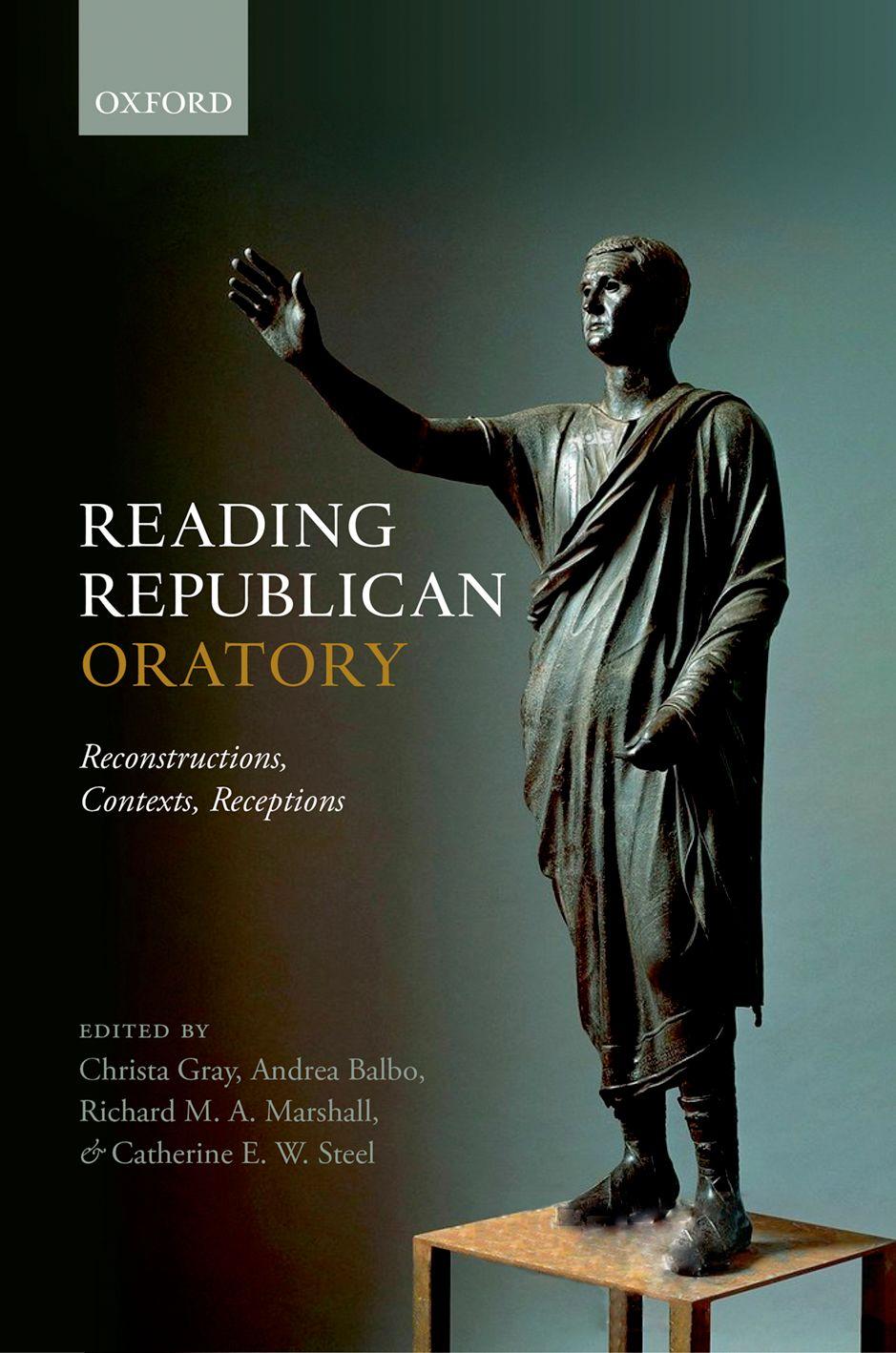ReadingRepublican Oratory
Reconstructions,Contexts,Receptions
Editedby CHRISTAGRAY,ANDREABALBO, RICHARDM.A.MARSHALL, and CATHERINEE.W.STEEL
GreatClarendonStreet,Oxford,OX26DP, UnitedKingdom
OxfordUniversityPressisadepartmentoftheUniversityofOxford. ItfurtherstheUniversity’sobjectiveofexcellenceinresearch,scholarship, andeducationbypublishingworldwide.Oxfordisaregisteredtrademarkof OxfordUniversityPressintheUKandincertainothercountries
©OxfordUniversityPress2018
Themoralrightsoftheauthorshavebeenasserted
FirstEditionpublishedin2018
Impression:1
Allrightsreserved.Nopartofthispublicationmaybereproduced,storedin aretrievalsystem,ortransmitted,inanyformorbyanymeans,withoutthe priorpermissioninwritingofOxfordUniversityPress,orasexpresslypermitted bylaw,bylicenceorundertermsagreedwiththeappropriatereprographics rightsorganization.Enquiriesconcerningreproductionoutsidethescopeofthe aboveshouldbesenttotheRightsDepartment,OxfordUniversityPress,atthe addressabove
Youmustnotcirculatethisworkinanyotherform andyoumustimposethissameconditiononanyacquirer
PublishedintheUnitedStatesofAmericabyOxfordUniversityPress 198MadisonAvenue,NewYork,NY10016,UnitedStatesofAmerica
BritishLibraryCataloguinginPublicationData
Dataavailable
LibraryofCongressControlNumber:2017946743
ISBN978–0–19–878820–1
Printedandboundby CPIGroup(UK)Ltd,Croydon,CR04YY
LinkstothirdpartywebsitesareprovidedbyOxfordingoodfaithand forinformationonly.Oxforddisclaimsanyresponsibilityforthematerials containedinanythirdpartywebsitereferencedinthiswork.
Preface
ThisvolumeoriginatedinaconferenceheldattheUniversityofTurinon 15–17April2015,organizedbyCatherineSteelandAndreaBalboaspartofthe FragmentsoftheRomanRepublicanOrators projectbasedattheUniversityof GlasgowandfundedbytheEuropeanResearchCouncil(2012–17).Weare gratefultotheSchoolofHumanitiesattheUniversityofGlasgowandtothe DipartimentodiStudiUmanisticidell’UniversitàdiTorinofortheirassistance inrunningtheconferenceandtoalltheparticipantsattheconferencefortheir contributionstoourdiscussions.Theconferenceorganizershavebeenjoinedin theprocessofeditingbytwooftheResearchAssistantsontheFRROproject, ChristaGrayandRichardMarshall,andthetaskofputtingthevolumetogether hasbeensmoothedforusbythequickandresponsivecollaborationofallthe contributors.TheeditorsaregratefultoZaraChadha,whoassistedwithputting thetypescripttogetherandpreparedtheindexeswithskillandaccuracy. AdditionalresearchcostsweregenerouslysubsidisedbytheAlexandervon HumboldtFoundation.Finally,wemustthankOxfordUniversityPressfor theirsupportandencouragementwiththisprojectfromitsoutset.
ListofFiguresandTables ix
ListofAbbreviations xi
ListofContributors xiii
i.RepublicanRome 17
1.RomanOratorsbetweenGreeceandRome:TheCaseof CatotheElder,L.Crassus,andM.Antonius19 AlexandraEckert
2.RepublicanSatireintheDock:ForensicRhetoricinLucilius33 IanGoh
3.PlautusandtheToneofRomanDiplomacyofIntervention49 ElenaTorregarayPagola
4.TheEloquenceofPubliusSulpiciusRufusandGaius AureliusCottainCicero’ s Brutus 59 AlfredoCasamento ii.ImperialRome 75
5.TheFragmentsofRepublicanOratorsinQuintilian’ s Institutio oratoria 77 AmedeoRaschieri
6. Vis and Seruitus:TheDarkSideofRepublicanOratory inValeriusMaximus95 S.J.Lawrence
7.ReconstructingRepublicanOratoryinCassiusDio’ s RomanHistory111 ChristopherBurden-Strevens
8.NettingtheWolf-Fish:GaiusTitiusinMacrobiusandCicero135 JohnDugan
PARTB:RECONSTRUCTIONOFTHEFRAGMENTS ANDTHEIRSOCIALANDPOLITICAL CONTEXTS
i.ReconstructionsintheLiteralSense 151
9.GaiusTitius, Orator and Poeta. (Cic. Brut. 167andMacrob. Sat. 3.16.4–16)153 AlbertoCavarzere
10.Clodius’ Contiodeharuspicumresponsis 171 AnthonyCorbeill
11. ‘Certaingentlemensay...’:Cicero,Cato,andtheDebate ontheValidityofClodius’ Laws191 KitMorrell
ii.OratoricalPerformance 211
12.ThePoliticsof Pronuntiatio:The RhetoricaadHerennium andDeliveryintheEarlyFirstCentury BC 213 JenniferHilder
13.Tracesof Actio inFragmentaryRomanOrators227 AndreaBalbo
14.ISaid,HeSaid:FragmentsofInformalConversationsand theGreyZonesofPublicSpeechintheLateRomanRepublic247 CristinaRosillo-López
iii.GenderinFragmentaryOratory 261
15.OfFragmentsandFeelings:RomanFuneralOratoryRevisited263 HansBeck
16.FragmentsofEpideicticOratory:TheExemplaryCaseofthe LaudatioFunebris forWomen281 CristinaPepe
17.WomenfromtheRostra:Fulviaandthe ProMilone 297 BillGladhill
18. OratorumRomanarumFragmentaLiberaeReiPublicae: TheLetterofCornelia, MaterGracchorum,andthe SpeechesofHerFatherandSon309 JudithP.Hallett
Figures
5.1.Citationsperorator79
5.2.Citationsperbook80
Tables
13.1.Voice231
13.2.Gestures231
13.3.Movements231
13.4.Combinedelements231
Introduction
Recentdecadeshaveseenavigorousdiscussionamongscholarsaboutthe significanceofpublicspeechintheworkingsoftheRomanRepublic.1 AlthoughRomehaddevelopedintoavastempirebythe firstcentury BC , itretainedthepoliticalstructuresofthecitystatefromwhichithad originated. 2 Theseincludedcitizenparticipationinpoliticaldecision-making andaconcomitantroleforpoliticaloratory.Inasocietywithoutmechanicallyreproducedmassmedia,oratoryrepresentedauniquelyeffectiveway tocommunicatewithalargenumberofpeople,andthe contio wasthechief meansofdisseminatinginformationtothecitizenbodyasapreliminary tolegislativeactivity.Suchinformationcouldincludereportsofdebatesin theSenate,andsenatorscouldalsodisseminateversionsoftheircontributionstosenatorialmeetings. 3 Alongsidetheseoccasionsforspeechwere others,lessdirectlyconnectedwithspecificdecisionsbutnotirrelevantto theciviclifeofthecommunity,suchasspeechesdeliveredatthefuneralsof thoseprominentinpubliclife,aswellasarangeofutteranceswhichtook placeinpublicandhadthepotentialtocontributetothereputationsand perceptionsofpoliticians.
AmajorchallengeintheanalysisofpoliticaloratoryintheRomanRepublic isthepartialnatureofthesurvivingevidence.Wearewellsuppliedwith oratoricaltextsfortheendoftheRepublic,buttheseareallbyCicero.The purposeofthisvolumeistoexplorethewaysinwhichwecanrecoveroratory bymen(and,inexceptionalcases,women)otherthanCicero.Itisconcerned withboththemethodsbywhichwecanreconstructnon-Ciceronianoratory andwiththeresultsofsuchreconstructions:whatcanweknowaboutthe
1 SomemilestonesareMillar1998;Morstein-Marx2004;Achard2006;Blom2016;Blom, Gray,andSteel(forthcoming).ThisvolumeitselfispartoftheEuropeanResearchCouncil fundedproject ‘TheFragmentsofRepublicanRomanOratory’ (FRRO),whichseekstoidentify alltheevidencefororatorybyspeakersotherthanCiceroduringtheRomanRepublic.
2 TheextenttowhichthesemechanismsofparticipationmadeRepublicanRomedemocratic hasbeenhotlydebated;see,inadditionton.1,Millar1984;1986;Jehne1995.
3 BeforeCaesar’slegislationtopublishthe actasenatus in59 BC,thiswasoftentheonlywayto publicizesuchinformation.
content,context,allusions,anddeliveryofsuchspeeches?Inpart,thechallengesinvolvedinaccessingfragmentaryoratoryareidenticaltotheproblems ofunderstandingthetransmissionprocessesofancientRomanliteraturein general.But,aswewillarguebelow,oratoryisagenrewhichisuniquely difficulttopindownbecauseitisanoralphenomenonwhichneedsnowriting atall;evenwherewritingandspokenoratoryintersect,thewrittentracesthat surviveofthisprocessarenot,inthecaseofRepublicanRome,straightforwardtranscriptsofspeechesasthesewereactuallydelivered.
Onemethodoftransmittingoratorywasthroughtextswhichpurportedto recordinwritingwhathadbeensaidinspeeches,andwhichweredisseminatedbythosewhodeliveredthespeech.Inthiswaythespokenwordwas replacedbyanauthoritativewrittenanaloguethatcouldentertheliterary traditionandbequoted,excerpted,oralludedtolikeanyotherworkof literature.TheprimeexamplesofthistypearethespeechesofCicero,many ofwhichhavecomedowntousintheirentiretythroughtheliterarytradition.However,Ciceroisinmanywaysauniquecase.Asanoutsidertothe senatorialnobility,hewasveryconsciousoftheneedtobasehiscareeron substantiveachievements,namelyhisprowessasanorator.Asaresult,the emphasisinhistheoreticalworksontheimportanceoforatoryinRoman politicsmaywellbeexaggerated;thescaleofpublicationofhisspeeches,and perhapseventheircirculationasworksofliterature,alsoreflectshisdistinctive profile.Otherpoliticiansfoundotherwaysofpromotingthemselves:Caesar, forexample,publishedhis Commentarii ontheGallicandCivilWars;Pompey ’ssupportersproducedterracottabustsinhisimage.4 BecauseCicero foregroundedoratoryandmanyofhis ‘speeches’ survive,hisoratoricalpracticehasgeneratedhugeamountsofscholarshipinitsownright.5 Thisvolume willfocusinsteadonpublicspeechwhichsurvivesonlyinpieces,whetherin quotations,citations,theoreticaldiscussions,orthecreativereworkingsof historiansandothers.Ofthesesnatchesoforatoricalexpression,somehad theiroriginsinspeechesthatwerepublishedonbehalfoftheirauthors like Cicero’ s butwerelaterlostfromtherecord.Othersmayhavebeenrememberedas dicta or ‘wingedwords’,sayingsthatenteredpopularconsciousness andbecameemblematicoftheirspeakers’ characters,suchasthenotorious Carthagodelendaest oftheelderCato.6 Yetmoresurvivemerelythrough summariesofwhatwassaidonparticularoccasions.Inothercasesagain,the characterofaperformanceisrecordedimplicitlythroughthereactionstoit. Herethenotionof ‘character’ combinesviewsofthespeaker’spersonalitywith
4 Rosillo-LópezinBlom,GrayandSteel(forthcoming).
5 Tempest2011;Gildenhard2011.
6 Incidentally,theearliestevidenceforthissayingappearstobelongtotheImperialperiod: Plin. NH 15.74, clamaretomnisenatuCarthaginemdelendam.
his(hardlyeverher)7 rhetoricaltechnique includingtheuseofvoice,facial expression,andgesture andthecontentofhiswords.Sometimesthese aspectsareitemizedinoursources,butmoreoftentheimpressiongivenis anintegratedoneoftheperformanceasawhole.8 Furthermore,notallpublic speechtooktheshapeofformalsetpieces:spontaneousandevencasual remarkshadthepotentialtobecomeequallynotorious.9 Ourintentionisto supplementthecomplete(Ciceronian)workspreservedinwrittentransmissionandtoinvestigate,asfarasispossible,therelationshipsbetweenthe fragmentaryandtangentialevidencethatisrecordedandtheoralcontextsin whichit(onlysupposedly,insomecases)originated.
ThemethodologicalproblemsingettingtogripswithRomanRepublican speechasitwasspokenandheardaredeepandvaried.Therearenumerous factorsthatin fluencethemeansbywhichaspeechwasrecordedandthe contentthatwasultimatelypreserved.Fromthedeliveryofaspeechonwards,theprioritiesofavarietyofagentsdeterminedwhatwasrecorded andremembered,and,ofcourse,thecriteriaofrelevancewereconstantly beingnegotiated.Eveniftheintentioninaspecificcasewastopreservea verbatimaccount,thegapbetweenwhatwasactuallysaidandwhatwas writtendownwas,intechnicalterms,nearlyunbridgeable.Evenifanorator isassumedtohavespokenfromascriptthatisextant,thereisnoguarantee thathestuckexactlytothisscript;norisitpossibletoreconstructfroma scripttheorator’ sdeliveryorthemoodoftheaudience.10 Infact,theuseof scriptsdoesnotappeartocorrespondwithwhatisknownoforatorical practiceinthisperiod,11 andnosurvivingtextpurportstobeanabsolutely accuratetranscriptofaspeechrecordedforthespeakerduringtheactualact ofdelivery.
Nonetheless,itremainsusefultotreatanorator’sauthorizedwrittentextas adistinctiveformofevidence:giventhedifficultiesoutlinedabove,itwouldbe unwisetotreatthisasarecordoftheexactwordsspokenonaparticular occasion,butitdoespreservewhatanoratorwishedittoberememberedthat hehadsaid,withconsequentimplicationsfortheprobability,ifnotthe veracity,ofhiswords:itmightbesaidthatsuchatextpreserveswhatan oratorbelievedhewasplausiblycapableofsayingunderthemostfavourable
7 Thevastmajorityofpublicspeakersweknowofaremale.SeesectionB.iiiinthisvolume foradiscussionofwomeninoratory.
8 Relevantpapersinthisvolume:especiallyBalbo;Hilder;Casamento.
9 Rosillo-Lópezinthisvolume. 10 Cf.Balbointhisvolume.
11 Theemphasison memoria withinancientrhetoricalpractice(cf.e.g. Rhet.Her. 3.28–40; Cic. Deor. 2.351–3;Quint. Inst.11.2.11–16)pointstoanenvironmentinwhichoratorsspoke frommemory,evenifthetexttheymemorizedhadbeenpreparedusingwriting.InfactCicero, ofwhosepracticeweknowmost,seemstohavecombineddetailedtextualpreparationofsome partsofspeecheswithawillingnesstoextemporize,increasingthedifficultiesintakinghis speechesasdirecttranscriptions.
ofperformancecircumstances.12 InallcasesexceptthatofCicero,theonly remainsofthiskindoftextualevidencearepreservedintheexcerptsoflater writers,andconsequentlywehaveonlyfragments.Accordingtothislineof thinking,thedefinitionofanoratorical fragment isafaithfullytransmitted excerptcopiedfromatextwhichwaspublishedbyanoratorandrecordsthe exactwordswhichhespoke(orrather,wishedtoberememberedashaving spoken)ontheoccasion.13 Suchfragmentsarevulnerabletothevicissitudes commontofragmentsofancienttextsingeneral:itisnotalwaysclearhow faithfullytheexcerpterscopiedtheiroriginals,and,additionally,theirown workswerenotexemptfromcopyingerrors,manuscriptdamage,andthe like.Afurtherdifficultywithoratoricalfragmentsisthattheinformation aboutthequotedtextisoftenpartialorabsentinthequotingauthority.An ancientauthorwhopurportstoquotewhatanoratorsaidwithoutidentifyinghissource may havehadinfrontofhim(orstoredinhismemory)the textofthespeechasoriginallydisseminatedbytheorator,butitisalso possiblethattheinformationcomesfromanotherkindofsource,suchasa historiographicaltext,inwhichcasethewordscannot,onthisde finition,be treatedasafragmentofthatorator.
Itmaybethecase,therefore,thatafragmentcontainsstrong,verbatim evidenceaboutthecontentofaspeech,butequally,owingtotheproblemsof recordingandtransmissionthatwehaveoutlinedabove,apassagethat appearstobeafragmentmayinrealitybesomethingelse.Further,notall oratorschosetopublishtheirspeechesinthe firstplace:Ciceroexplicitlytells us,forexample,thatScipioAfricanusdidnotengageinthispractice.14 And anexcerptedpassagecanonlyrevealalimitedamountofinformationifthe contextisnotrecorded nevermindsuchdetailsofaperformanceasvenue, audience,thespeaker’svoice,appearance,gestures,andsoon,absences whichevenaffectthevalueofCicero’stransmittedspeeches.15 Forallthese reasons,testimonia,whichsummarizearguments,occasions,anddelivery, maybeequally,ifnotmore,informative,andeven,insomerespects,more ‘truthful ’.Byextension,eventhereimaginedspeechesfoundinhistorical writingsmaypreservegenuineaspectsofanoriginalperformance,evenif
12 ThispointiswellillustratedbythecaseofCicero’stwospeeches ProMilone:Cass.Dio 40.54.3–4;Asc. Mil. 42C.
13 Thisisthedefinitionofafragmentwhichthe FRRO projectuses;itclassesallother evidenceastestimonia.
14 Cic. Off. 3.4: quamquamAfricanusmaioremlaudemmeoiudicioadsequebatur.nullaenim eiusingeniimonumentamandatalitteris,nullumopusotii,nullumsolitudinismunusexstat (‘AndyetAfricanus,inmyview,achievedthegreaterglory,asnorecordsofhistalentwere preservedinwriting,noproductofhisfreetime,noworkarisingfromhissolitudeexists’). Translation: FRRO
15 Forextratextualaspectsofpublicspeech,seeespeciallyinthisvolume:Hilder;Balbo;Beck.
theyareadditionallyrefractedthroughthepracticeofdeclamationandthe conventionsofhistoriography.16
Inwhateverwaystheseutteranceswererecorded,read,quoted,orotherwise rememberedandpassedon,theybecamepartofawidertraditionwhichleft itsstamponallsortsofmedia.17 Literary,didactic,andpoliticalcurrents constantlyreframedandreshapedtheexpressionsofRomanvaluesand identitythatrelatetopublicoratory.Inmanycasesitisimpossibletoseparate apieceofevidencefromitstransmissioncontext,letalonerestoreittoits original,pristinestate,withalltheaccretionsofhistoryremoved.18 Asensitive analysisoffragmentaryoratorythereforerequiresnotonlyknowledgeofthe historicalcircumstancesoftheoriginalspeech,butathoroughawarenessof theliterary,cultural,andideologicalfactors(amongothers)whoseinteraction producedandpreservedthematerialwehavetoday.Fromourendofthe tradition,anostensiblyverbatimquotationofaspeechmaylookmore ‘ authentic’ or ‘original’ thanasummaryoranadaptation buthowcertaincan webeineachcasethatthequotationreachesbackunchangedtothevocal apparatusofthespeaker,oratleasttoapublishedversionofaspeech? Asummaryoradaptation,ontheotherhand,mayaccuratelyrecordinformationregardingthedeliveryofthespeech,thoughnotthe ipsissimauerba of theorator.
Thesevariousproblemscomewithcrucialimplicationsforreconstructing andanalysingRomanpublicspeechasawhole:itmaybepossibletoclassify ourevidenceaccordingtoahierarchyofauthoritywithvaryingdegreesof confidence,butthereisnocriterionwhichguaranteesabsolutecertainty.The entire ‘experience’ offragmentaryoratory(i.e.oratoryaswemayseekto reconstructitfrombothfragmentsandtestimonia)dependsonaseriesof interpretativescreensimposedduringantiquityandbeyond:theseareinmany waysmorevariedthanwe findwithotherfragmentarygenres,becauseweare notsimplydealingwiththewillingnessoflatergenerationstoreadandcopy texts,butalsowiththevariableprocessesofcreatingoratoricalandquasioratoricaltextsinthe firstplace,andwiththedifferentinterests moralizing, biographical,geopolitical,educational uponwhichtherecordingoforatoricaltestimoniaispredicated.Thedistinctiveapproachofthisvolumetherefore consistsinforegroundingtheissuesthatconfrontthemoderncriticinreachingbacktoRomanRepublicanspeechthroughthe(mainlytextual)evidence thatwerelyupontoday.
16 SeeBurden-StrevensinthisvolumeforadefenceoftheusefulnessofDioCassiusin thisregard.
17 SeeEckert2016foracasestudyofancientmemorializationofaprominentRepublican figure,L.CorneliusSulla.
18 SeeDuganinthisvolume.
OnecentralquestionconcernstheimpactoftheendoftheRepublic:to whatextentdidthisconditionImperialauthorstovieworatoryintheirown dayasqualitativelyorfunctionallydifferenttooratoryaspractisedbefore Augustus?Therearetwomaintransformationswhicharelikelytohave influencedtheirreceptionofRepublicanoratory:thelossofparrhesiaor ‘freespeech’ undertheemperors(atopicforegroundedinTacitus’ Dialogus), andafundamentalchangeintheusestowhichoratorywasput.Deliberative oratorysurvived,albeitrestrictedmainlytosenatorialdebates;judicialoratorycontinued,sometimesinnewspaces,andwithmoreemphasisonthe centumviralcourts;andepideicticoratory flourishedthankstothenewimportanceofpraisespeeches.Together,manycontemporarysourcesperceivedthese changesintermsofdecadence(forexample,theelderSeneca,19 Petronius,20 VelleiusPaterculus,21 Quintilian,22 Pseudo-Longinus,23 andothers).AsAndrea BalbohasshowninhiseditionofTiberianoratoricalfragments,however,the conceptofdecadence,withitsethicalconnotations,isnotaparticularlyappropriatewayofexplainingthesetransformations:notonlydidmanyofthe olderspeechescontinuetobereadandcopiedasexamples(asattestedby Quintilian,24 Suetonius,25 Tacitus,26 andothers),butthepracticeoforatory continuedtoberelevant.TheoratoryoftheImperialagewasdifferent,butnot necessarilyless ‘valuable’ thanthatoftheRepublicanperiod.Contemporaries, however,perceivedthesefunctionalchangesasmarkinga qualitative decline inoratory.
Theirnegativeoutlookwaspartlyconditionedbythespacesinandoccasionsuponwhichoratorywaspractised.Thepresenceofthe princeps placeda constraintontheopportunitiesforpoliticalspeech,andtheincreasein maiestas-casesillustratednotonlythelimitationsinfreespeech,butoften broughtcontemporaryoratoryintodisreputeasthetooloftyranny.Changes inthelawremovedImperialpractitionersandtheoreticians(causidici and iurisconsulti,accordingtothefamousdistinctionatSen. Apocol. 8.2)further awayfromtheirRepublicanforebears:thesystemof cognitionesextraordinem, whichallowedforthesameofficialbothtoinvestigateandtojudgeacase, forcedoratorstoaddresspredominantlyanindividualratherthanalargejury. Thisnecessarilyledtoacompletetransformationinoratoricalstrategies.27
19 Sen. Contr. 1pr.6–10.
20 Petron. Sat. 1–2:Encolpius’ declamationonthedeclineoforatory.
21 Vell.Pat.1.17.3:Cicero’stimewasthehighpointoforatory.
22 Quint. Inst. 10.1.125–31blamesthepopularityofSenecaforthecontemporarydecline.His earlierwork(nowlost) Decausiscorruptaeeloquentiae evidentlyexpandedonthesubject.
23 OntheSublime 44diagnosesaworldwidedeclineofeloquenceandliteratureingeneral.
24 SeeRaschieriinthisvolume.
25 Suet. Rhet.1givesanaccountofstudentslearningtoanalyse(exponere)speeches; Rhet.2 quotesfromthespeechwhichM.CaeliusgaveinhisowndefenceagainstAtratinus.
26 Tac. Dial.,e.g.21.1–2onthetwenty-onebooksofspeechesleftbyCalvus.
27 SeeBablitz2007.
Further,thetransmissionandrepresentationoftheRepublicanoratorical recordwasliabletodistortionfromsubsequenteducationalneedsandpracticeswithinanincreasinglymethodicalandstructuredteachingenvironment. Withinthisteachingenvironment,proficiencyindeclamation thecompositionandperformanceoforatoricalsetpieces increasinglybecameagoal,not merelyameans,ofinstruction.Alargeproportionofthematerialthatwehave definedaboveasfragmentsistransmittedthroughthedeclamationsofSeneca theElder,Pseudo-Quintilian,andCalpurniusFlaccus,inQuintilian’smanual ofeducation,andtherhetoricalandgrammaticaltreatisesofLateAntiquity. Manyreferencestofragmentaryoratoryarethusconditionedbytheneedsof thesedifferentschooltexts.Forexample,grammaticalworksrequiredshort portionsoftextwithpreciseboundariesinordertohighlightthepointunder discussion,andtended,quitenaturally,togravitatetopassagescontaining lexicalorgrammaticaloddities.Theperceivedauthorityofthespeaker,insuch cases,wasfrequentlymoreimportantthanbibliographicalorothercontextual informationabouttheultimatesourceofthematerialquoted.Quintilian, thoughhetendstopaymoreattentiontospecifyingtheoratorandthecontext, confinedhisselectionofmaterialtoacanonoforatorsheconsideredtobe suitablemodelsforhispupils;28 thedeclaimers,ontheotherhand,likedto quotepassagesfortheirpathos.
Onemustalsofactorinsimplechangesininterestsandfashions:those literarygenreswherewe findreferencestospeeches(apartfromschooltexts) haveverydifferentemphases.Forexample,inbiographicalworksquotations aredeterminedbytheneedoftheanecdoteandaninterestintheprotagonists’ ethos;historyissomewhatlessselectivethanbiography,buttheneed tofocusonthemostimportantfactsnecessarilyentailsleavingoutor obscuringothers.Forexample,Tacitusdescribestrialswhentheyhavea functioninhisnarrativeconstruction;sometimesherecreatesthem,but otherwiseheomitsthem.29 Theepitomesfromthefourthand fifthcenturies AD wereevenmoreselectiveaboutthematerialtheyused,andwere oftenconcernedtoprovideusefulpiecesofinformationforimperialbureaucrats,whonecessarilyworkedinasystemfarremovedfromthatinplace duringtheRepublic.Christiantextsaremoreinterestedinatheologicaland teleologicalconceptionofhistoryandlife.Inaddition,alltheabovewere oftenindebtedtoearliercompendiafortheirmaterial,whichmightcircumscribethechoiceofmaterialtransmittedandin fluencethewaythiswas subsequentlypackaged.
28 SeeRaschieriinthisvolume.
29 SeeDamon2003;Rogers1952,1959;Davies2004:143(onTacitus’ useofreligious elementsintermsof ‘acoherentprogramme,shapedbyselectivity,powerfultimingand presentation’);Mayer2010.InLateAntiquitycf.Amm.26.1.1:historymustspeakofthe negotiorumcelsitudines.
Asaresult,theselectionandpresentationofearlierspeechesiscontingent onarangeofsubsequentfactors,andwemustbeawareoftheinfluenceof thesedevelopmentsonourunderstandingofRepublicanoratory.Afterall,it wastheImperialperiodwhichshapedallsubsequentaccesstothisbodyof material:authorslikeQuintilian,andevenlaterwriters,hadaccesstospeeches whichonlydroppedfromtherecordmuchlater.30
Thecontributionstothisvolumeseektotakethesemethodologicalissues intoaccountastheycometotermswiththequestionsthatfragmentary oratorycanallowustoanswer.Someofferaperspectiveonthesociological aspectsofRomanRepublicanoratory:howitwasusedinpracticeandwith whateffect.Ontheprosopographicalside,somepapersseektogiveabroader answertothequestion ‘whospokeintheRepublic?’ Otherpapersexplore meansfordealingwiththe filtersaffectingallstagesofthetransmission,and reflectonaestheticconsiderationsthatmayenablethe(re)writingofastylistic historyofRomanRepublicanoratoryindependentlyofCicero,onthebasisof fragmentaryinformationaboutotherspeakersandspeeches.31
VOLUMESTRUCTUREANDCONTRIBUTIONS
Thestructureofthisvolumemovesfromquestionsandanalysisoftransmission(PartA)tothereconstructionofspeecheswhoseremainsaretransmitted infragmentaryfashion,alongwiththeirsocialandpoliticalcontexts(PartB). Thisorderisdesignedtoemphasizethescreeningeffectsofthosewhoselected andpassedonthematerialoforatoryontheevidencewecanusetointerpret oratoricaleventsintheRomanRepublic.Accordingly,PartAisdividedintoa ‘Republican’ andan ‘Imperial’ subsectiontobringoutthechangesinstatus andusefulnesswhichoratoryunderwentduringthetransitiontothePrincipate.Thefactthatoratoryceasedtobeamediumofpoliticalmasscommunicationmeansthatoratorywasprobablytreatedquitedifferentlybyauthors likeQuintilian,ValeriusMaximus,CassiusDio,andMacrobiusthanbytheir Republicanpredecessors,whodiscussedoratoryasalivingpoliticalpractice.
Thecloseinteractionbetweenscholarlyanalysisofthetextstransmitting fragmentaryoratoryandthereconstructionoftheoriginalcontextisdemonstratedbythetransitionfromPartAtoPartB:thelastpaperofthe first Partandthe firstofthesecondPartdealwiththesamefragmentofthe oratorTitiusasrecordedinMacrobius ’ Saturnalia, Sat.3.16.15–16= ORF4 51F2.WhereasJohnDuganinvestigatestheliteraryandculturalreasons
30 Including,forexample,speechesbyC.SallustiusCrispusPassienusandCn.DomitiusAfer inQuint. Inst. 6.1.50and8.5.16.
31 SeeinthisvolumeGoh;Torregaray;Casamento;Cavarzere;Dugan.
whichmayhavemotivatedMacrobiustoincludethiscitation,Alberto CavarzeresituatesTitiusinhisownrhetoricalenvironment.Thischapter introducesthesubsectionwhichdealswithreconstructionsintheliteral sense(B.i);thetwofollowingsubsectionsaddressbroaderthematicconcerns,specificallyoratoricalperformance(B.ii)andthesignificanceofgenderinfragmentaryoratory(B.iii).
PartA
A.i
The firstpartofthisvolumeisdesignedtoaddressdirectlyquestionsof reception,selection,andtransmission.The firstsubsectionconsidersevidence fromtheRepublicanperiodfromthesecondcentury BC onwards.Itfocuseson commentsaboutRomanpublicspeechnotjustbywell-knownpractitionersof oratory,suchasCatotheElderandCicero,butalsofromsatiricalanddramatic perspectives.Thusthesectionassessestheusefulnessofanalysingdifferent genresassourcesfororatoryanditsbackgroundastheyreflectawiderliterary andculturaldiscourseaboutoratoricalpracticeinatimewhenpublicspeaking wasanessentialpoliticaltool,andwhenthequestionofhowonebecamean effectivepublicspeakerwasofdeepconcerntotherulingsenatorialelite.
AlexandraEckertrevisitsthemisgivingsofanumberofRomanaristocrats whenRomewas firstfacedwithadazzlingdisplayoforatoricalbrilliance fromGreekambassadorsvisitingthecityinthecourseofRome’sGreekwars inthemidsecondcentury.Thepopularityoftheseperformancesappearedto some Catoinparticular totiltthebalancebetweenappropriateandexcessive familiaritywithforeignculture,andconsequentlyCatomadeapointofarguing infavourofareturntothe ‘appropriate’ (dismissive)estimationofGreek culture.EckertthentraceshowamoregeneralpressuretobeseenasappropriatelycriticalofGreeklearningledRomanoratorstoadapttheirtechniquesto concealtheextenttowhichtheyhadlearnedfromandwereindebtedtoGreek models.ThischapterthusoutlinestheplaceoforatoryinRomancultureas awhole.
Followingthisdiscussionofproprietyandthelimitsofinterculturalinfluences,IanGohdiscussesthepresentationofappropriateandinappropriate (stylesof)oratoryinthesatiresofLucilius.Awarenessofthegenericpositioningofdifferentverseformatsanditemsofvocabularyinapoeticcontext helpstothrowlightontheinterpretationoftheoratoricalfragmentsreported inLucilius,howeverunreliably.
Ofcoursesatirecanonlybeeffectiveifthereissomerelationshipbetweenit andtheaudience’sexperienceof ‘realworld’ oratory,oratleastwiththeirtacit assumptionsconcerningthispractice.ThisistheapproachtakenbyElena
TorregarayPagola,whoanalysesaspeechfromPlautus’ comedy Amphitruo thatrelatestothecontextsofdiplomaticoratory:theslaveSosia’saccountof hismasterAmphitruo’svictoryovertheTeleboeans.Torregarayshowshowa carefulcomparisonofthisspeechwithwhatisknownaboutcontemporary diplomaticpracticemayenableustoextrapolatefurtherinsightsintothe ‘real world’ phenomenon.
Finally,AlfredoCasamentoaddressesCicero’shabitofevaluatingoratorsin pairsbylookingatthepresentationofPubliusSulpiciusRufusandGaius AureliusCottainthe Brutus.AlthoughCicero’sanalysisresistsstraightforwardinterpretationsbecauseofhisownself-positioning,Casamentoargues thatitisstillpossible especiallyifwepayattentiontothefeaturesofthe oratorsinquestionthatare not explicitlycontrasted toextractfromCicero’ s evidenceasenseoftheacceptablerangeoforatoricalbehaviour.
InconcentratingontheevidencewhichRepublicanwritersprovideconcerningtheoratoryoftheirowntimeandtherelativelyrecentpast,thesefour chaptersestablishtheexistenceofwhatcouldbedescribedasanormative discourse,inwhichpublicspeecheswereevaluatedintermsoftheirsuitability fortheirrespectivecircumstances,theirideologicalimplications,andbythe relationshipofanorator’sself-positioningwithhisstyle.
A.ii
ThesecondsubsectionofPartAdiscussesthereceptionofRepublicanoratory intheImperialperiod.Themainquestiondealtwithhereconcernstheeffects thatlaterauthors’ preoccupationsandmethodsofworkinghaveontheir presentationofRepublicanoratory.Thoughadifferentstorycouldbetold ofthismaterial,namelyits(potentially)formativeinfluenceuponlaterquotingauthorities,thebroadthemethatunitesthesecontributionsisinsteadthe distortionsimposeduponquotedmaterialbycitingauthors;inotherwords, theofteninsidiousinfluenceexercisedbylaterauthoritiesoverourunderstandingofthefragmentsofRepublicanoratory.
ThissectionopenswithAmedeoRaschieri’sstudyofthefragmentsof RepublicanoratorytransmittedbyQuintilian,whichshowsthathischoice ofwhattociteandwhomtonamewaspromptedbyarangeofconsiderations, fromapedestrianrequirementto findgrammaticalillustrations,toquestions ofcanonicity,moralexemplarity,andpedagogicalutility.Theaggregateof RepublicanoratoricalmaterialinQuintilianisshowntobehighlyheterogeneous,andQuintilian’simmanentauthorialconcernsemergeasanimportant factorinthepatternsofcitationobservableinhiswork.Quintilianisarguedto haveknownmuchoftheRepublicanoratoryhecitesat firsthand,andthus, ratherthanrecyclejudgementsorpassagesfromhispredecessors,wasfully equippedtomakeapersonalinterventioninthecriticaltraditionsconcerned withRepublicanoratory.
ThecontributionofSarahLawrencelikewiseilluminatestheinvestmentof ValeriusMaximusinthematerialhecites,arguingagainsttraditionalviews thatseehimasmerelyamechanicalcompilerof exempla,devoidofcreative agency.Focusingonsection8.9(‘Howgreatistheforceofeloquence’), LawrenceshowsthatValeriusMaximushadasurprisinglynegativeopinion ofthepoweroforatory.Comparingtheillustrativeexampleschosenby ValeriusMaximuswiththetraditionsonwhichhewasreliant,theseexamples areseentohavebeenselectedandmanipulatedtosuithisparticularagenda. DrawingattentiontothemarkedabsenceofCicerofromtherollcallofthe past’smostpowerfulspeakers,andthesubtleredrawingofmaterialtaken fromCicero’sownrhetoricaltreatises,Lawrenceuncoversastrategydesigned toimplicateoratorysystematicallyinthecorruptionofliberty,arguedtostem fromapost-Augustanpessimism.ThematerialrecycledinValeriusMaximus cannotbetreatedas ‘uncontaminated’ historicalevidence,butbearsthe imprintofthetimeandpersonalityofitsquotingauthor.
AcontrastingcaseisinvestigatedbyChristopherBurden-Strevens,who showsthatscholarshavebeentoohastyinwritingoffaspureinventionthe RepublicanspeechesreportedinCassiusDio.AcomparisonwithCicero showsthat,ifDio’saccountcannotclaimtobefaithfulinreportingthefacts ofaspeech(whospoke,whatweretheirprecisewords,andwhenexactlythese wereuttered),andevenifheisnotabovecombiningseveraldiscreteincidents forthesakeofsimplifyingthenarrative,Dioneverthelesstookcaretogive whathethoughttobeanaccurateimpressionoftheargumentsemployedin discussionsofgeneralproblems,anddidsobyconsultingrelevantevidence. Thus,althoughportionsofCicero’sspeechinfavourofthe lexManilia in 66 BC areplacedinthemouthofGabiniusandtransposedtothe lexGabinia debateof67 BC,Dioisfoundtopreservenotonlythecontent,butalsothe rhetoricalstrategiesofhissource.WhileDiocannotbeusedtoreconstruct thelostspeechesoforatorssuchasGabinius,hisworktookpainstocapture thegenuinecharacterofRepublicanoratorytoanextentnotpreviously suspected.Futureworkonthisneglectedresourcemayonedayyieldmajor insightsintolostoratoricaltraditions,notwithstandingthedistortionsintroducedbyDiohimself.
Inthe finalpaperofthissection(whichcanbereadasacounterpointtothat ofAlbertoCavarzereatthebeginningofthenext),JohnDugansubjectsan extensivefragmentofGaiusTitiusanditspresentationinMacrobiustothe methodsofNewHistoricism,showingtheinterrelatednessofquotedand framingtexts,andhowtheboundariesbetweenthesemaybepurposefully elidedtomakeamoremeaningfulwhole.Dugan’spaperalsodrawsattention toprogrammaticstatementsmadebyMacrobiusconcerningtheinterpretationand ‘digestion’ offragmentarymaterial,whichinsomerespects prefigure andcanbebroughtintoproductivedialoguewith recenttrends inculturalanthropology.

